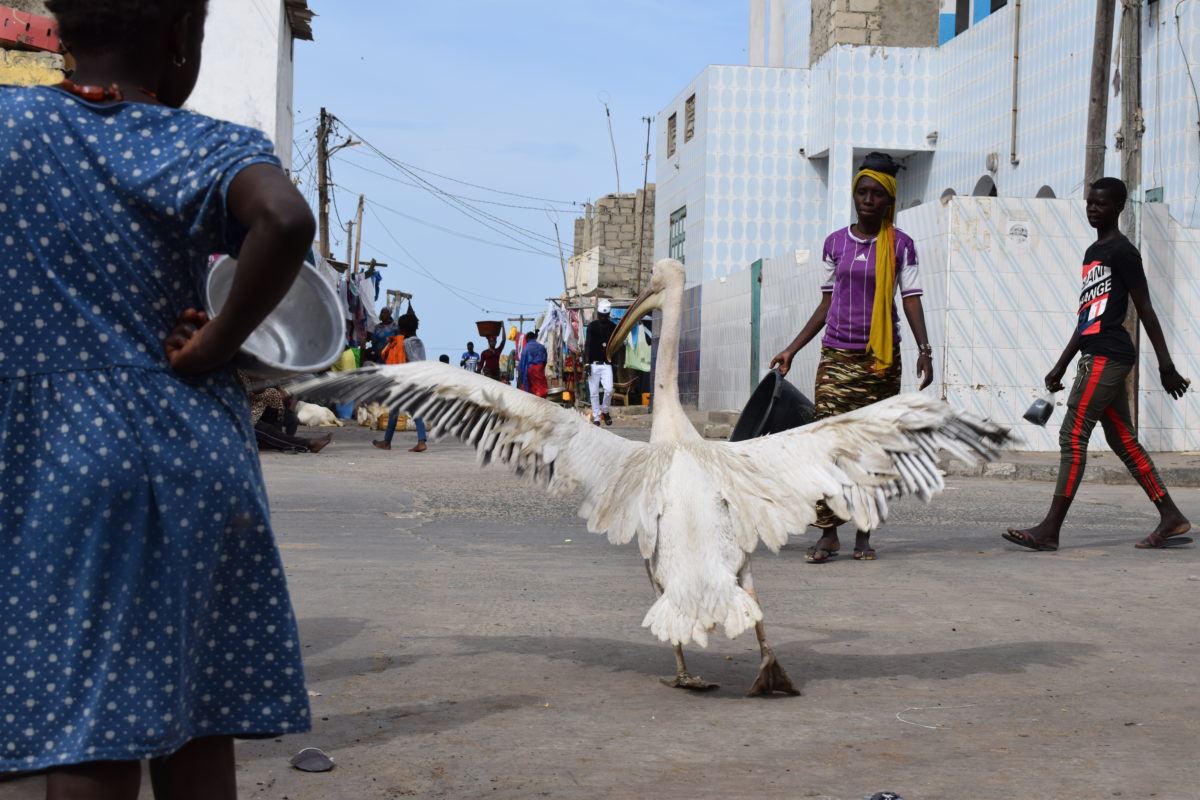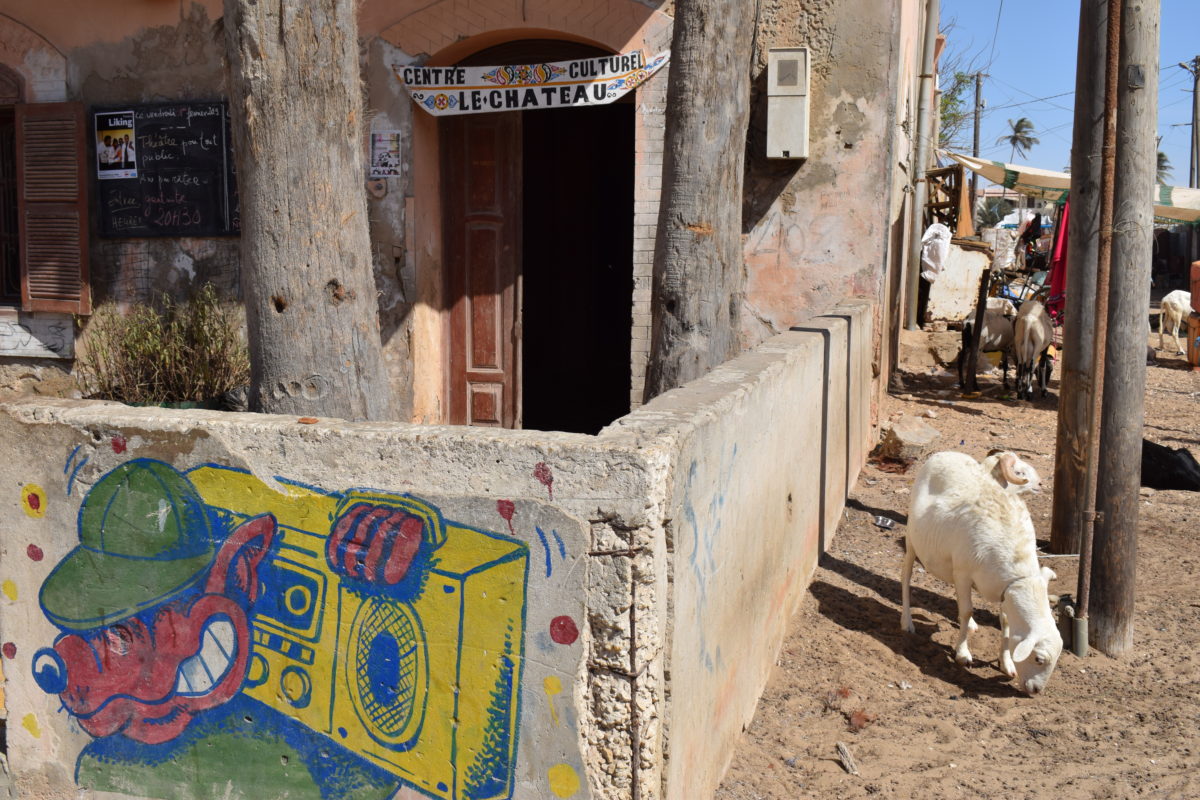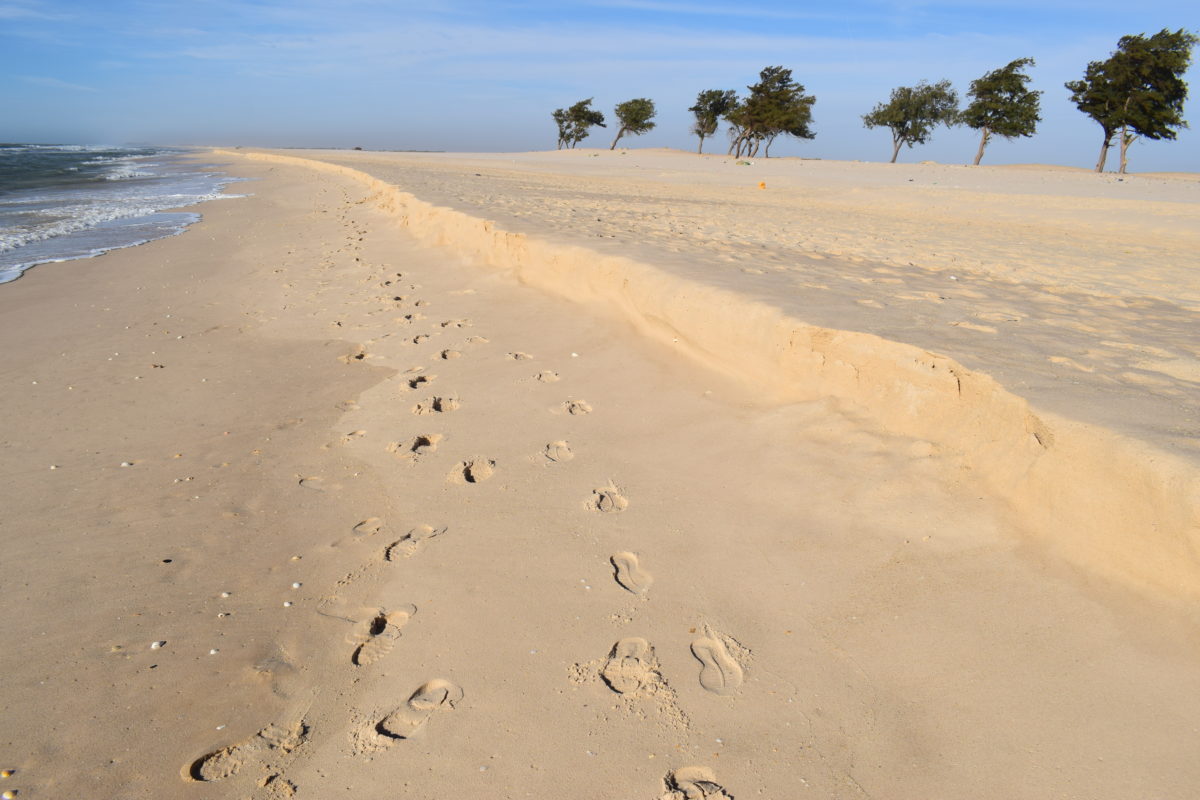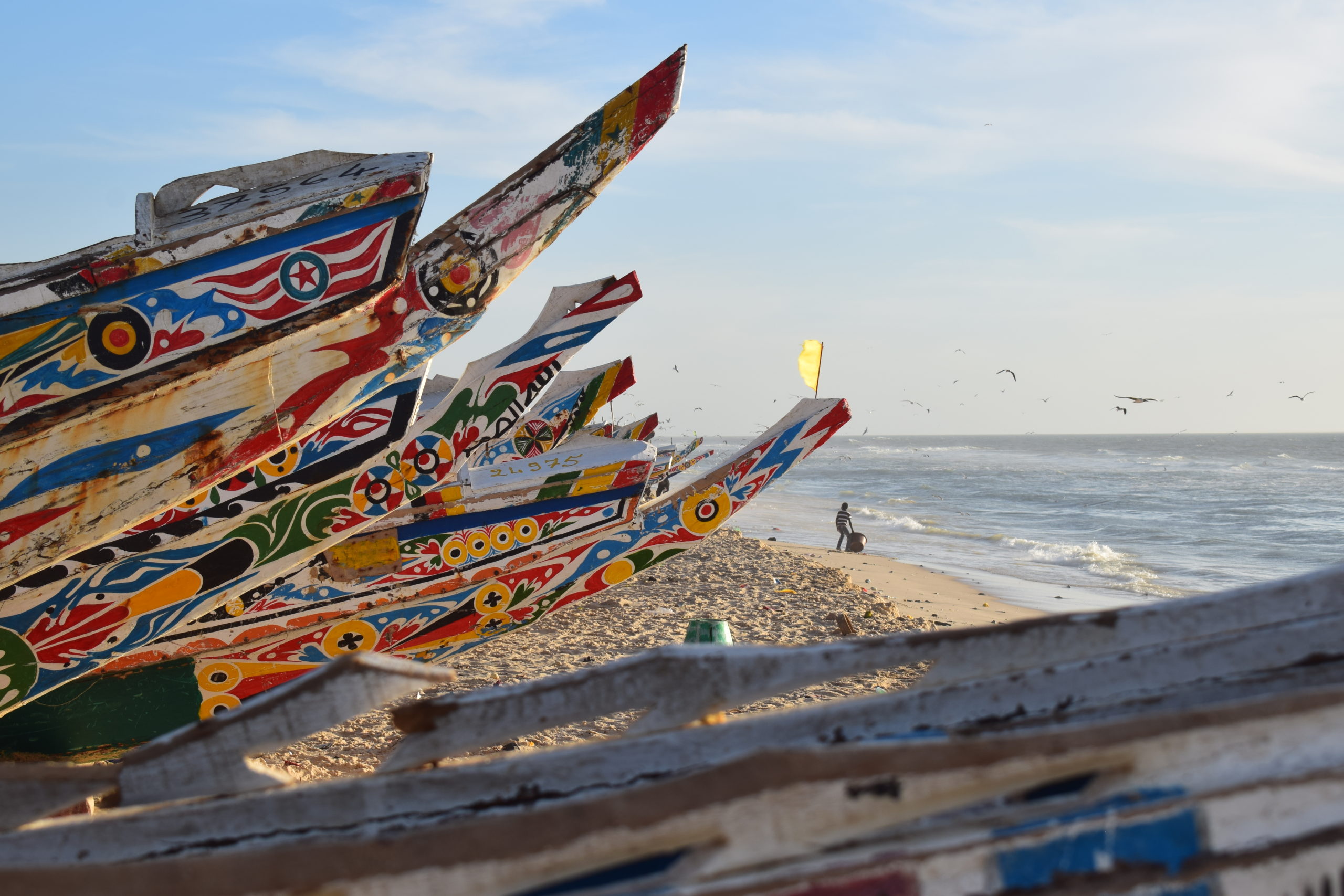
By: Eva Mulej
The city is still flickering from the day’s heat when we finally manage to escape from the verve of Saint Louis, a city on the northwest coast of Senegal.
It stretches from the mainland, over the Feidherbe Bridge, to the small island with beautiful colonial architecture and ends at the narrow peninsula that has an overwhelming village vibe. The people are, nonetheless, extremely chic and wear the shiniest clothes even if they are just going for groceries. The streets on the peninsula are covered with sand. It always smells of dried fish and sheep are nervously walking in circles, tied on stakes with short strings. Even at 2 a.m. you can hear the locals singing, horns honking and while turning in bed, sensing the smoke of burned trash. When I look down the window I see a man without one leg resting together with the goats. I question the correctness of my vision.
I am on a merry-go-round. A Senegalese merry-go-round of colors, smells, sounds and thoughts. I feel more alive than ever before not being able to control the pallet of emotions that are coming and going.
It has already been a month I have spent here, in Saint Louis, living in a cultural centre Le Château, where I share a home with Senegalese and French people working on the cultural program. Beside French institute they organize the most diverse events in the city and work closely with the local community, especially with young dancers. It is inspiring to see them dance and showing each other new moves. I managed to learn some basics, but as everything else, it takes a lot of practice. If you are lucky you can see a big dance battle lasting for a few hours when everybody comes to cheer for their friends.
When the day is coming to an end it is time to leave behind all the happenings of Le Château.To process and let your mind wander. A friend told me we should go to Salsal, a beach on the north side of Saint Louis, at the very end of everything. It starts like a fishing village and is becoming more and more calm and empty as you approach Mauretania.

My partner and I catch a taxi that takes us through the peninsula. Our fellow passenger throws us two mandarins as he gets out of the car and invites us to see his fruit stall at the last street of the village. The driver leaves us close to Mauritanian border and we make our way to the sea. It is low tide and the fishermen are preparing for night fishing. Four men are pushing the boat and two rolling the cylinders under it to make it move. The boat lands safely in the water and, slowly, the silhouette is disappearing from the horizon under the red, dusty sun. Resilient trees are reaching the shacks and cool ocean swallowing the steps of the fishermen. Let’s have a walk through the vast sandy landscape. Finally barefoot.
As I squat on the beach I watch the guys running and training. I think I should be doing the same but it is simply too hot. The air is completely dry, craving for the rainy season to wash away the pieces of Sahara that got here during the sandstorm. Weather forecast: widespread dust.
I am looking at the sun setting in the misty sky thinking about being here and now. A woman passes by with a huge bucket on her head with her hands moving freely by her body. We look at each other and she continues walking nonchalantly chewing a piece of wood serving as a toothbrush.

I try to reflect on everything. Gratitude. I am grateful for being here in this sub-Saharan world, in the world I can’t yet understand. The moment of comprehension always comes after. Sitting on the shore makes me feel calm and secure about the future even though my feet from time to time still move restlessly. What is there to come?
The hour is getting late and I am ready to go back. When getting closer to our home I admire women carrying babies on their backs and men sitting in front of the boutique, having a tea. The community is so powerful here. People live connected with each other and make the time stop when they want to. My friend said once: “They organize their work around their life, not their life around their work.”
Two goats greet me as I enter Le Château and I dive into the familiar chaos. There is a concert going on tonight and everyone is getting ready. I shake the sand off my shoes and I am ready for the show too.
About the author: Eva Mulej is a 24-year old traveler, writer, social pedagogue and street theatre performer from Slovenia. Currently she is travelling in West Africa and, together with her partner, working on social circus projects with locals. Read more of her journals on www.undertree.org.



